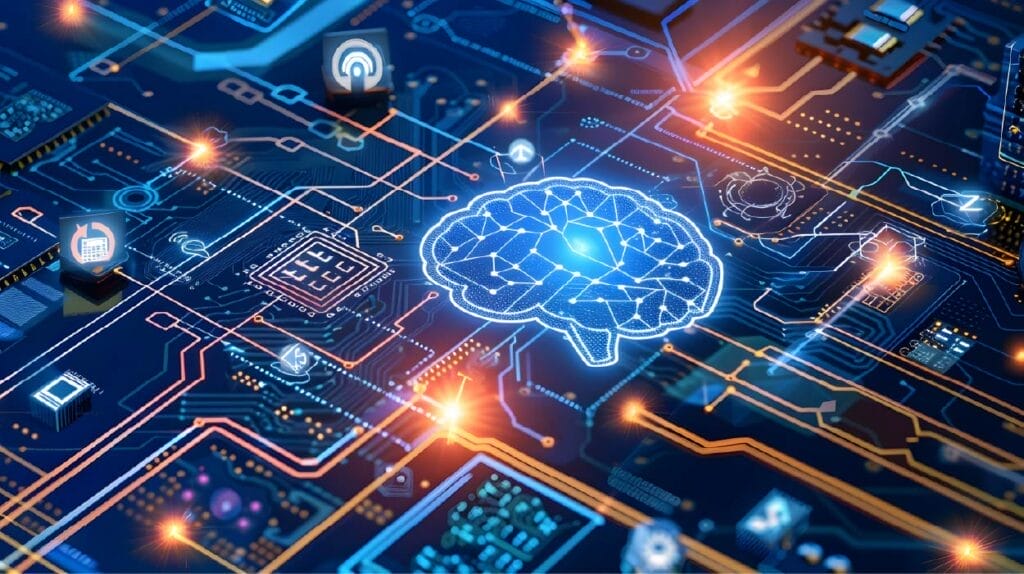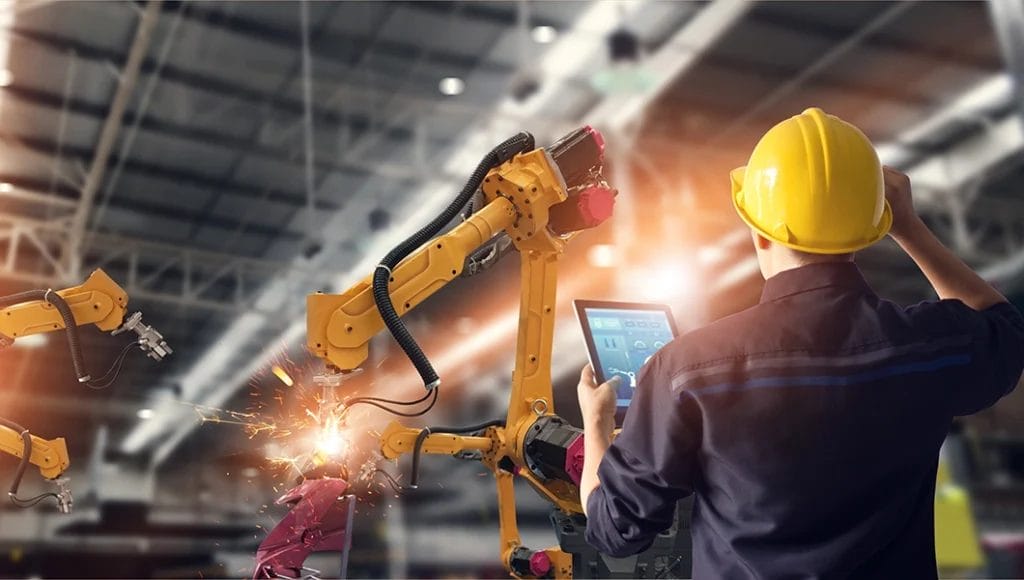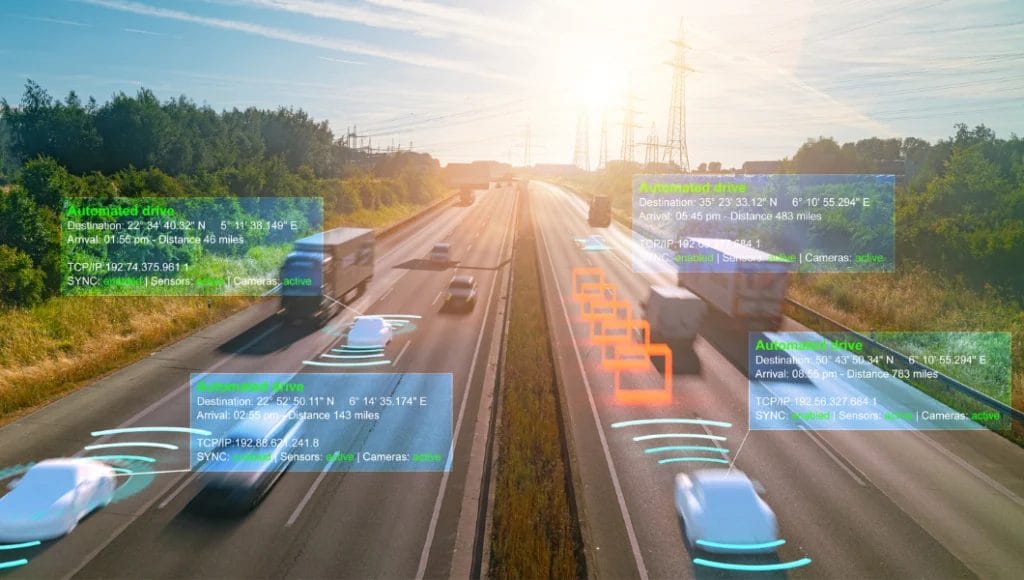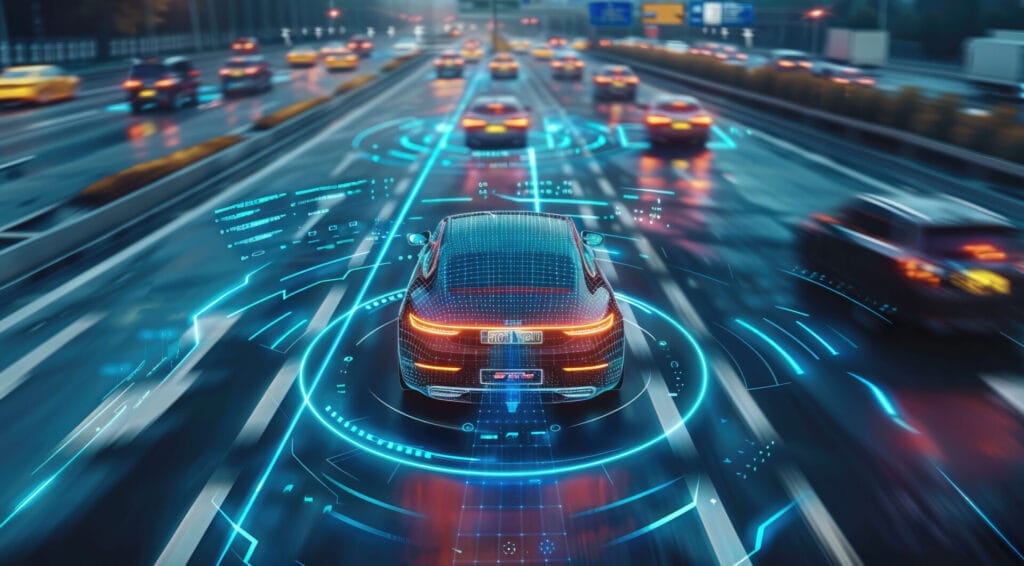Fueling the Future of Enterprise AI
The Qumulo Data Platform enables you to harness high-performance compute and GPU resources for enterprise AI systems across any public cloud, next-generation neocloud, or on-premises infrastructure.

The Reasoning Revolution is about uniting balkanized data fiefdoms into a single, unified data lake/platform/pool — one where every department, every workload, every dataset can be brought to bear on every problem. It’s about turning decades of underutilized, unstructured data into a competitive weapon. It’s about enabling AI not to just answer your questions, but to answer them better than you thought to ask them.”
Douglas Gourlay
President and CEO of Qumulo
Any Data, Any Location, Total Control -
Fueling Enterprise AI.
Timely access to relevant and comprehensive data is crucial for AI accuracy. The Qumulo Data Platform enables seamless data access from the edge, to the data center and core, to the cloud, unifying every data type and workload, and making data available to Enterprise AI systems anywhere. Qumulo’s Low-Latency AI Cloud Data Accelerator unlocks the value of your data to improve time to results, reduce pipeline complexity, and boost efficiency.
Any Data
Use the Qumulo Data Platform to make billions of files instantly visible to your AI workflows, whether on-premises or in the cloud, without having to clone or migrate any data.
From PACS systems in healthcare to Petrel in oil and gas, customers across various industries trust Qumulo to handle their data and applications.
Any Location
Deploy Qumulo near AI accelerated processing whether on-premises, AWS, Azure, GCP, or OCI – even if they span multiple locations – empowering efficient, high-performance AI processing.
Power constraints dictate workload placement now, and Qumulo lets you keep your data where it is and get the processing capacity/power to run it where it is available.
Total Control
The Qumulo Data Platform enables organizations to determine exactly what data is expressed across geographical, provider, and organizational boundaries with our strictly consistent Cloud Data Fabric.
This extends a global namespace even across organizations with local durable write-caching and predictive read-ahead NeuralCache for AI and HPC intensive workloads.
How Qumulo Enables Enterprise AI Reasoning
Enterprise AI is only as powerful as the data it can access and use for reasoning. Yet most enterprises’ data remains trapped in data silos, each tuned for a narrow workload and isolated by hardware, geography, or cloud. Qumulo was built to break down these barriers and unify every dataset, every location, and every workload into a single, sovereign data domain that fuels the AI Reasoning Revolution.

AI-Optimized Performance
A key component of Cloud Data Fabric, Qumulo NeuralCache provides low-latency access even to your remote data – particularly critical for AI models. NeuralCache monitors activity and access patterns for every directory, anticipates the data that will be needed next, and pre-emptively stages it into local memory, decreasing time to results. NeuralCache can consistently deliver cache hit rates of over 90%, even for remotely-hosted data.
Ready for Generative AI in the Cloud
Qumulo provides enterprise wide knowledge assets to leading AI assistants, including integrations with Amazon Q and Microsoft Copilot.


Cloud-Scale Flexibility & Cost Efficiency
AI is distributed, and so is Qumulo. Our Cloud Data Fabric allows AI workloads to run in AWS, Azure, GCP, OCI, and on Cisco UCS and HPE systems all at the same time—without ever refactoring applications or replicating datasets. Enterprises can arbitrage GPU resources across clouds, burst to elastic compute pools for training, and repatriate workloads for cost efficiency or sovereignty, all while maintaining a unified namespace and instant data consistency.
Unified & Simplified
One storage solution that unifies all your data stores without sacrifice. From AI and HPC to archive and backup on a single data storage solution, that can be optimized for each, making it easier to bring your data all into a single data lake solution for the ultimate in AI model building, training, and inference support.


Reduced Training Time
Accelerate deep learning operations for TensorFlow, PyTorch, and other AI frameworks by eliminating f ile-object translation delays. Qumulo delivers sub-millisecond latency and high throughput to maximize GPU performance, cutting end-to-end AI training times by over 30%.
Universally Consistent
Qumulo Data Platform ensures strict data consistency and real-time visibility, ensuring that your Enterprise AI workflows have access to the latest version of your data, vital to delivering timely insights and supporting informed decision-making.
We not only provide the latest version, we also provide a universal versioning and snapshot of data for AI governance across the entire enterprise.


Enterprise-Grade Governance
AI Reasoning requires trust. Qumulo embeds compliance and control into the platform, supporting GDPR, HIPAA, and sovereign enclave requirements. Data security is enforced through at-rest and in-flight encryption, multi-tenant isolation via Qumulo Stratus, and AI Ops observability with Splunk. This ensures enterprises can responsibly deploy AI reasoning systems without compromising privacy, security, or regulatory posture.
Ready for Your AI Workloads
Qumulo makes it simple to connect and use any of your data, from any location with total control over access, usage, and outcomes.

Modern Manufacturing

Autonomous Vehicles
Whether for use by software defined vehicles, simulations, or digital twins, datasets powered by Qumulo are accelerating the data driven development for autonomous technologies and bringing self-driving cars and autonomous vehicles closer to reality.

Life Sciences

Observability

Medical Imaging
Qumulo powers the next generation of digital pathology and healthcare imaging by unifying petabyte-scale image archives, PACS systems, and AI-driven diagnostics into a single, high-performance data platform. From whole-slide imaging to radiology studies, Qumulo ensures clinicians and researchers have instant, secure access to billions of files across hospitals, research centers, and cloud AI pipelines, enabling faster diagnoses, streamlined collaboration, and compliance with HIPAA and regional sovereignty requirements—all while accelerating AI model training that turns medical data into life-saving insights.

ISR and GEOIT
Qumulo enables sensor fusion and intelligence, surveillance, and reconnaissance (ISR) by consolidating vast streams of imagery, video, telemetry, and signals intelligence into a unified, real-time data fabric. Deployed from edge platforms in the field to exabyte-scale data lakes in secure clouds, Qumulo ensures every feed is instantly accessible for AI pipelines, mission planning, and analytic reasoning. With sovereign-grade security, sub-millisecond performance, and seamless multi-domain replication, Qumulo transforms fragmented ISR datasets into a coherent intelligence picture—delivering faster situational awareness, enhanced decision superiority, and resilient operations across land, sea, air, space, and cyber domains.
Engage in the Conversation
See What We're Up To
Discover insights and perspectives on AI, technology trends, innovations, Qumulo, and product news.



